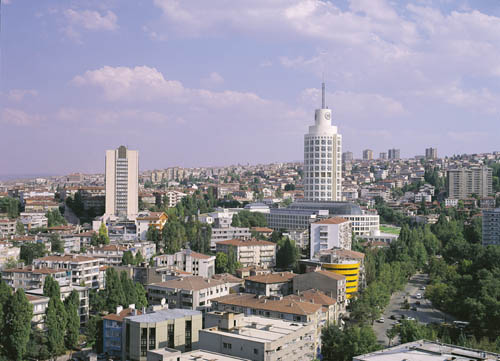The Turkish government has signaled that it will lift the decades-old ban on Islamic lodges and convents Today`s Zaman reported.
Deputy Prime Minister Bekir Bozdag said the government could take steps to lift the ban on Islamic lodges and convents, in place since 1925, since the government is aware of their underground functioning and deliberately ignoring them is an obsolete practice.
Islamic lodges are usually used by Muslims to practice rituals of a religious order. Shortly after the Turkish Republic was proclaimed, Ankara banned all lodges, convents and visits to tombs of prominent Islamic scholars as part its drive to modernize. The ban on visits to tombs was eased when the Democratic Party of Prime Minister Adnan Menderes came to power in 1950.
While crackdowns on religious orders in the 1930s and '40s were rampant, authorities have allowed them to flourish in recent years and there are many religious orders practicing freely in "illegal lodges" -- small, underground mosques.
Bozdag's remarks came at a speech during a fast-breaking dinner hosted by the World Ehl-i Beyt Foundation, an Alevi association.
Environment and Forestry Minister Veysel Eroglu and Development Minister Cevdet Yılmaz also participated in the event.
Speaking during the fast-breaking dinner, Fermani Altun, head of the World Ehl-i Beyt Foundation, addressed the need to lift the ban on lodges and convents, saying that otherwise Alevis across Turkey could go on hunger strike.
Bozdag said although lodges and convents were shut down earlier in the century in Turkey, religious orders didn't disappear. He added that the state is aware of these activities and there is no need to deliberately ignore them. He noted that the state's first duty is to meet the demands of citizens and signaled that the government could make a move to abolish the obsolete law.
The government has made clear strides in recognizing the rights of Alevis in recent years. State leaders have sought warmer relations with Alevi leaders and paid numerous visits to cemevis -- Alevi houses of worship -- including a landmark visit by President Abdullah Gül to a cemevi in the predominately Alevi city of Tunceli in 2009. In 2011, the government took the bold step of formally apologizing for the 1937 Dersim Massacre, an acknowledgement of the government's killing of thousands of Alevi tribesmen in the eastern province of Dersim (now Tunceli).






